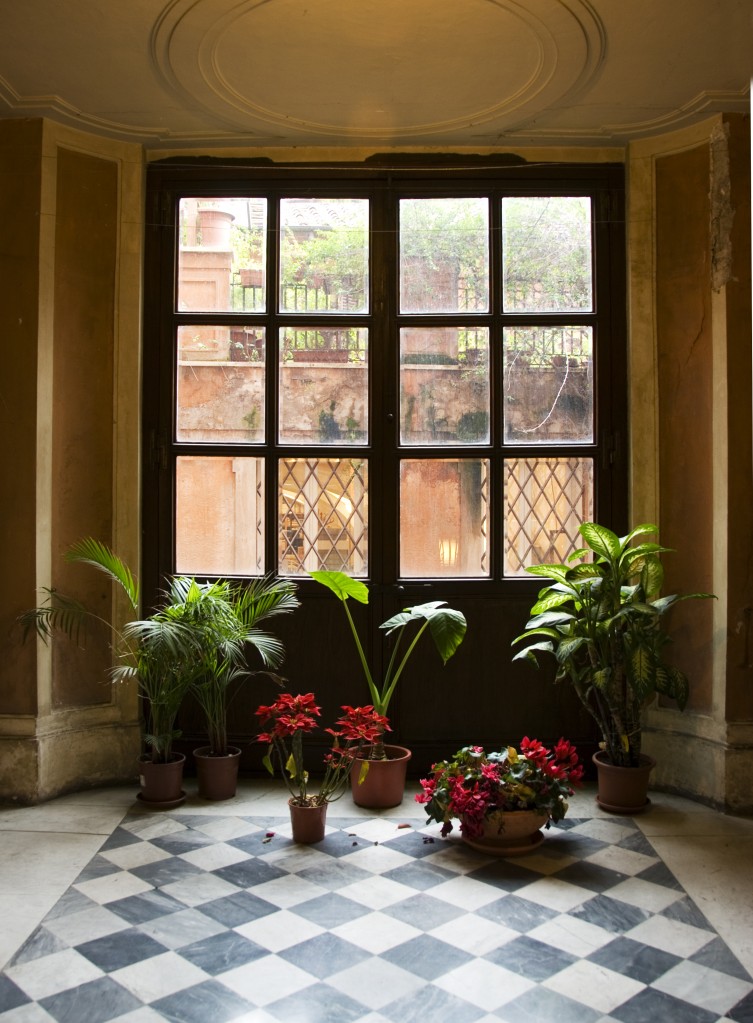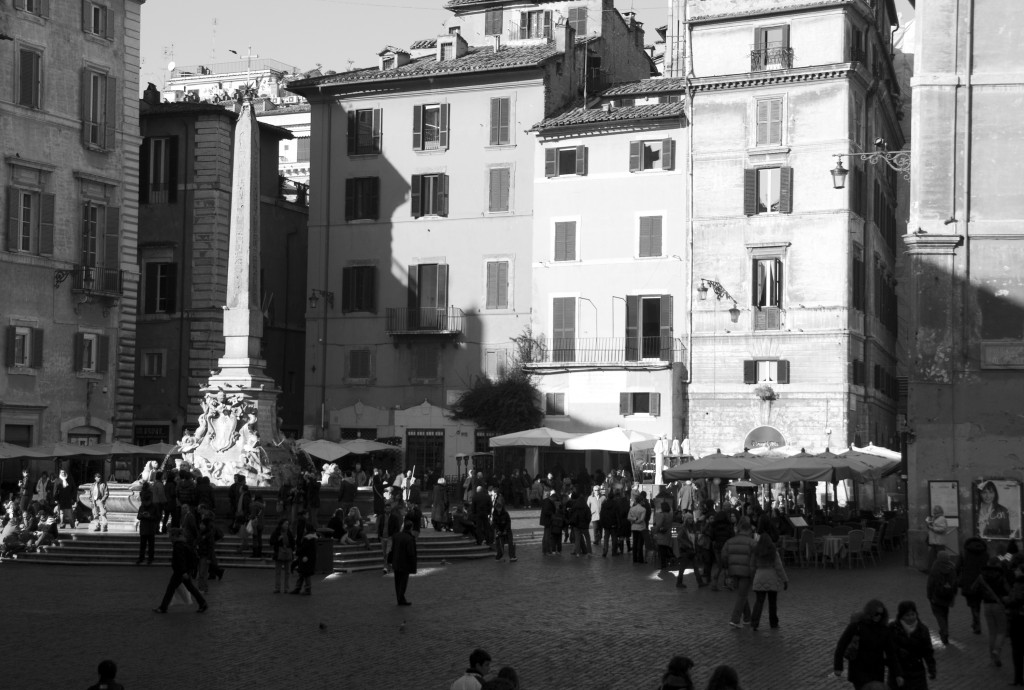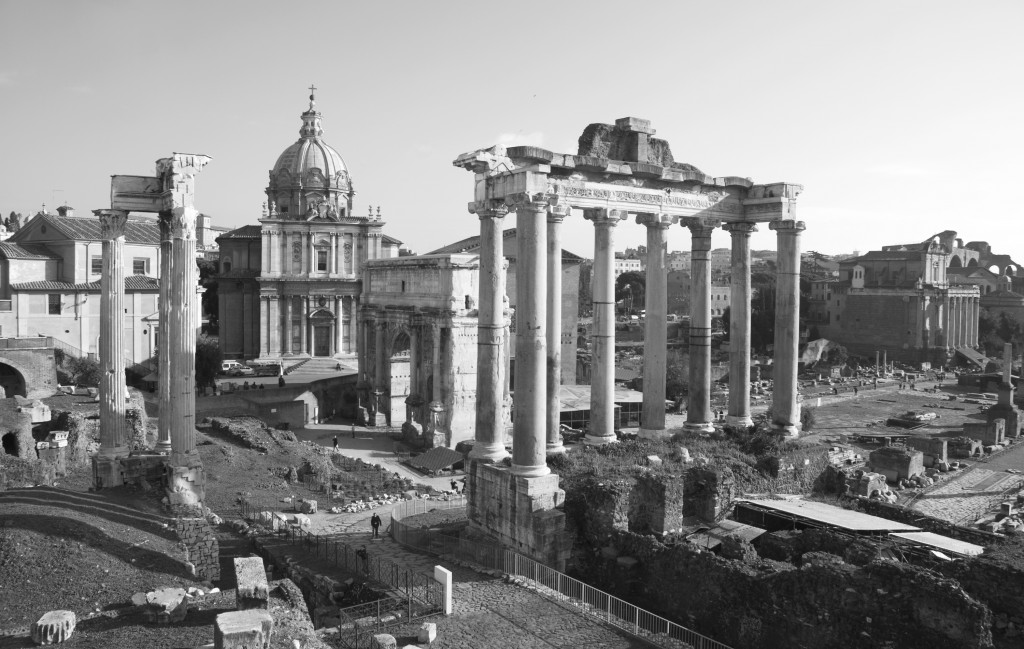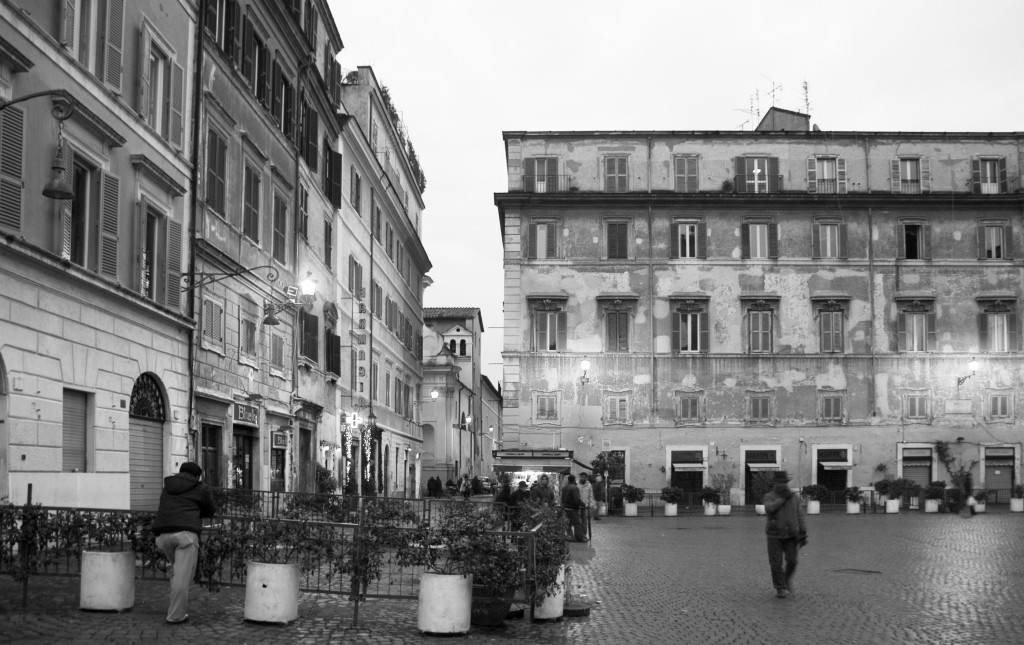
Discovering Rome is like experiencing deja vu. I find myself familiar with the things I see, but don’t know exactly where they come from. Being in Europe for the first time, there are things that are new to me, like getting used to the idea that the historic center of Rome is only slightly larger than the Cornell campus, or realizing just how sensual the city really can be with its intimate streets and piazzas. Yet despite all these differences, I find myself strangely familiar with the place and without the cultural shock that I expect when traveling abroad.
This very deja vu experience describes the awkward predicament I am in. Coming from America, I realize just how difficult it is to comprehend what I am seeing here. For all my life, I have been surrounded by reconstructions of Rome. As gorgeous as the Trevi fountain really is, I find it difficult to fully grasp its significance when I was just at the Trevi Fountain near Ceaser’s Palace in Las Vegas a month ago. Roman columns, which were once hailed as prized war items by the Romans, are also a favored style for home owners back in my home state of Arizona. From common household food items like spaghetti to the basic foundations of Western thought and philosophy, Rome has no doubt infiltrated my world in both blatant and subtle ways. I am a product of a glamorous Rome made convenient for capitalism, and without the often brutal history behind it.
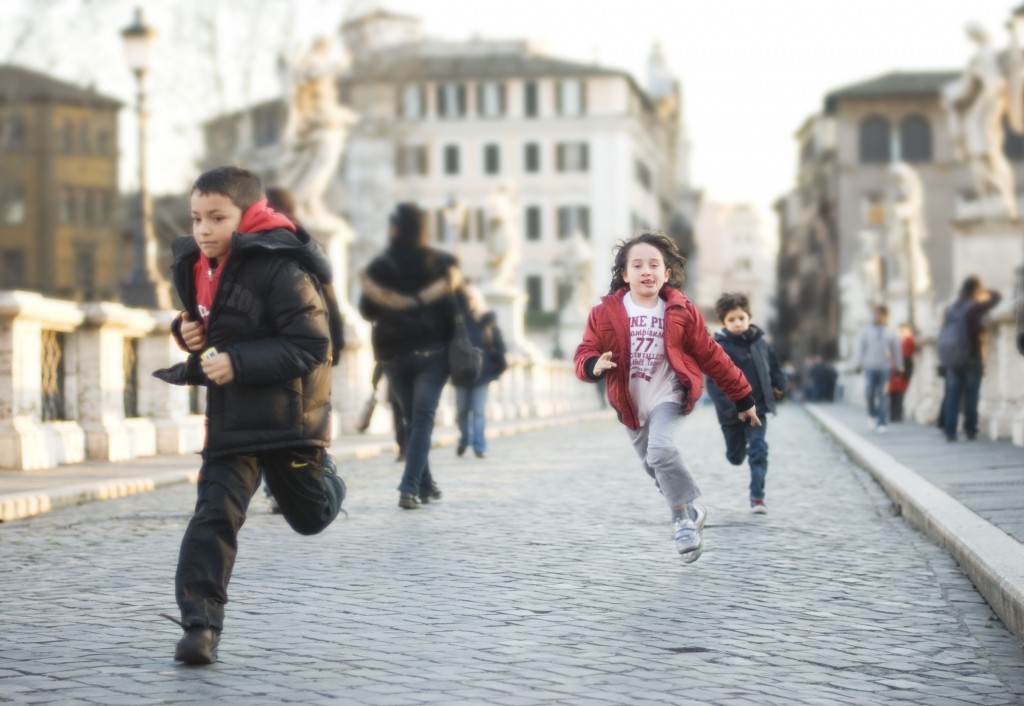
This uncertainty is also coupled by my inability to comprehend the vast history of Rome. How does an American like me, who has always lived a highly manufactured lifestyle no older than a couple of hundred years, allow me to understand the weight of timeless place like Rome? This particular handicap, blinded by my postmodern notions of Rome, is going to take some time to take off in order for me to better understand the weight of such history.
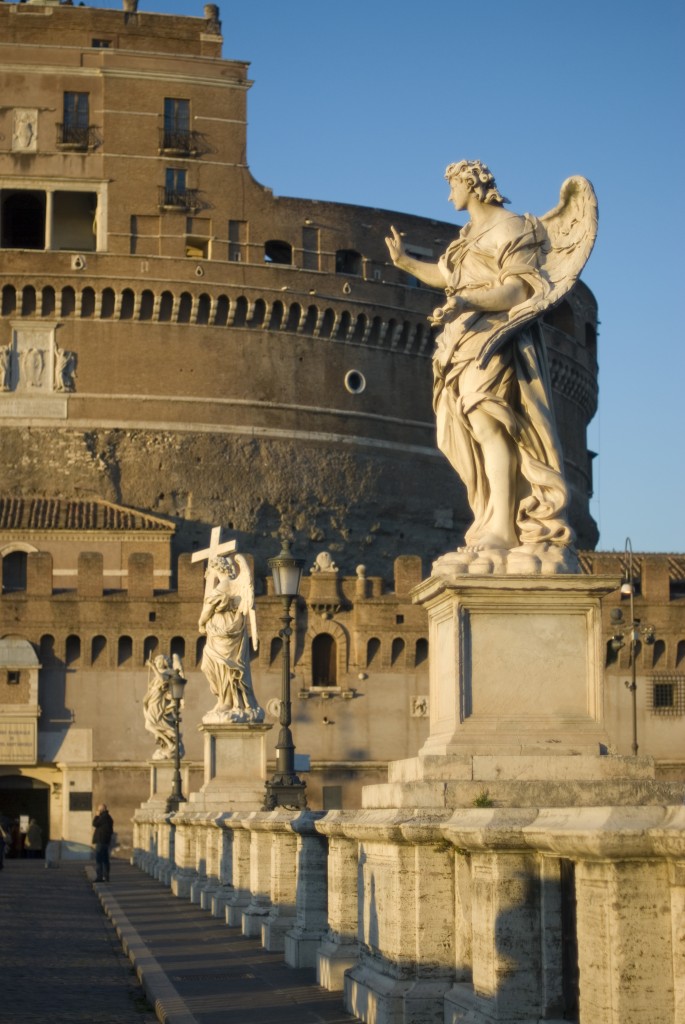
Rome’s far-ranging influence is truly a testament to its significant and cultural hegemony across the world. When traveling in South America with a Cornell studio two summers ago, I was able to see and experience native cultures that were radically transformed and fused by European colonial powers. But having encountered South America first, I must now re-trace my steps and find myself back at the origins of these colonizers, bringing my senses and journey back to a full circle.
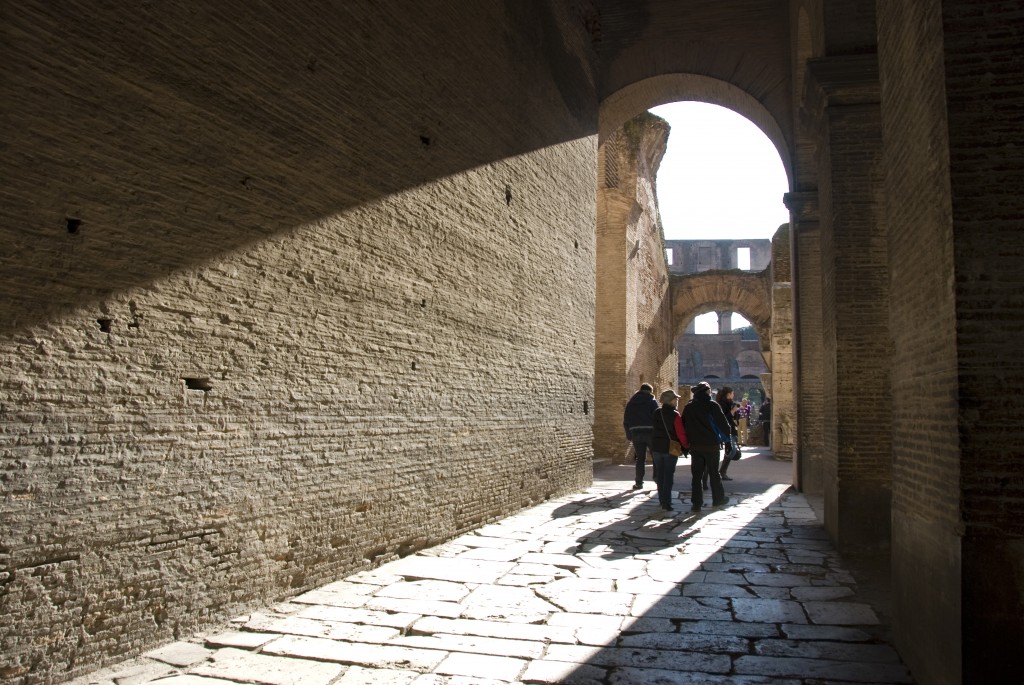
For most people, a semester is a long time to explore Rome. But the longer I have been here, the more I realize how much more I must unravel. It is not without coincidence that the Romans call this the “eternal city”. The amount of political groups, factions, and desires that have long shaped this city leaves me in an endless hole that I must constantly unravel.
People say that traveling to a new place is very much like being born again to a new world, where the places we attach our identity to are suddenly stripped away. I’d like to think of my time here in Rome as doing just that, not only losing myself in the process, but finding my place in the world.

